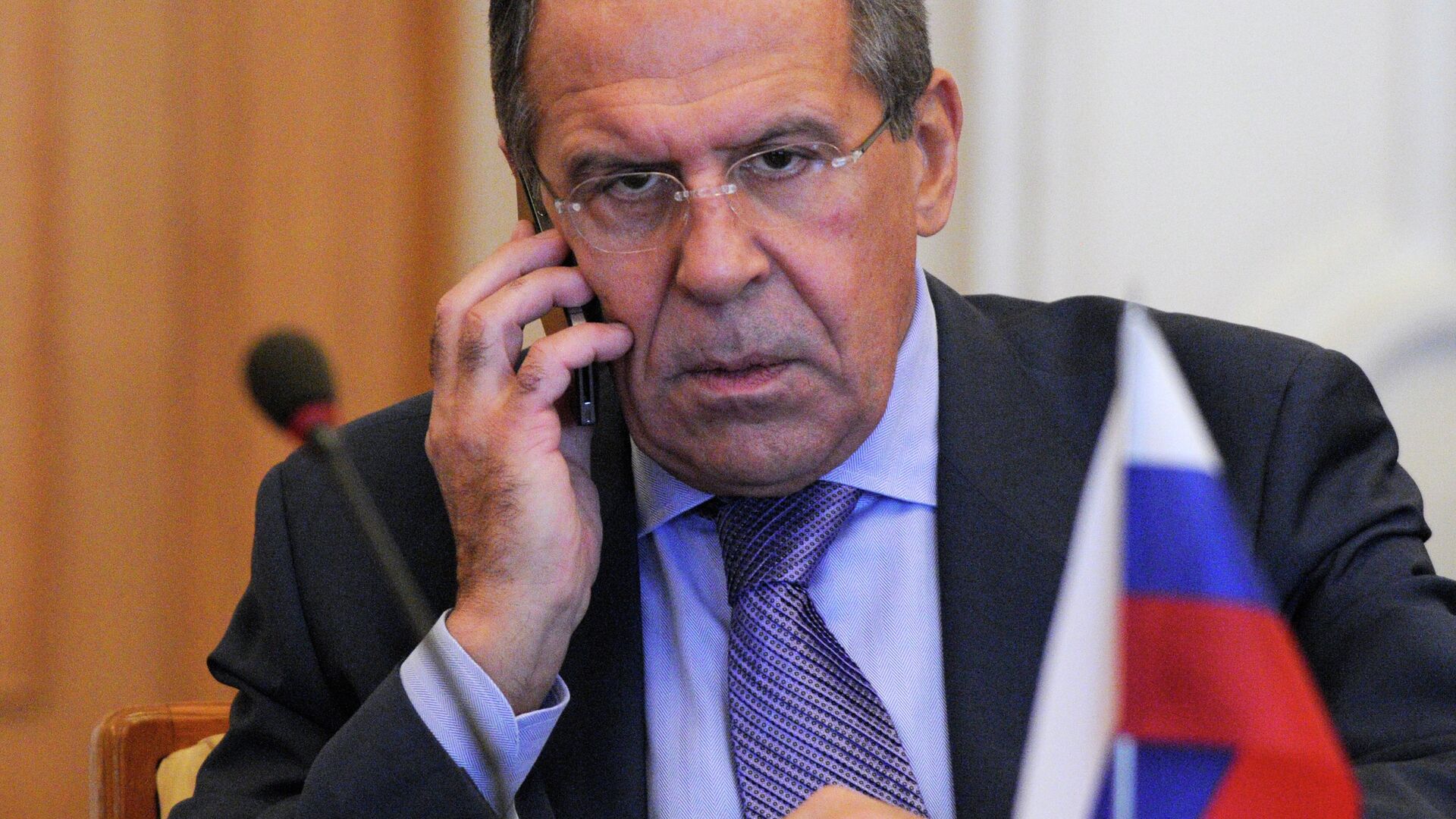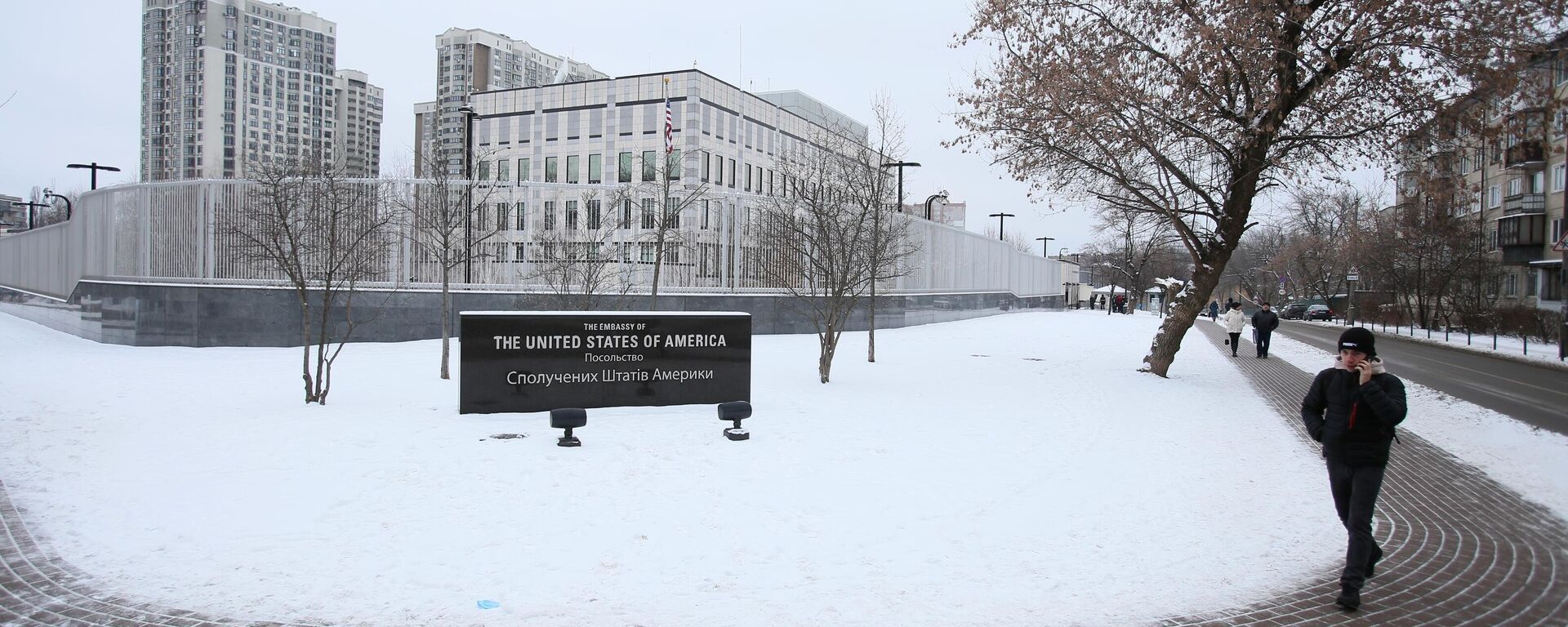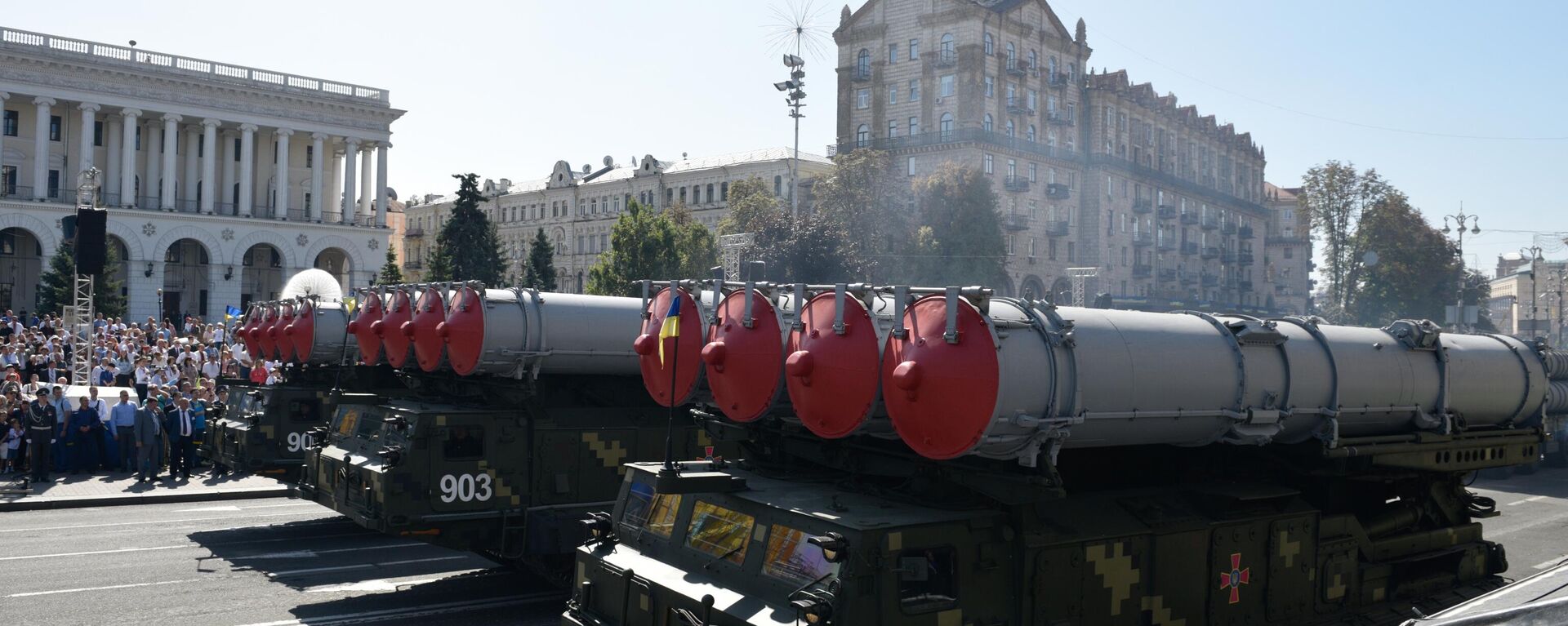Lavrov Tells Blinken Propaganda About 'Russian Aggression' Against Ukraine Has Provocative Purposes
12:29 GMT 12.02.2022 (Updated: 13:43 GMT 12.02.2022)

© AP Photo / Sergei Chuzavkov
Subscribe
Russian Foreign Minister Sergei Lavrov and his US counterpart Antony Blinken held telephone talks Saturday to discuss tensions over Ukraine. Ahead of the talks, Blinken claimed that a Russian "invasion" of its neighbour could start "at any time," and accused Moscow of "escalation." Russia has forcefully dismissed having any plans to invade anyone.
Foreign Minister Lavrov has informed Secretary Blinken that the "propaganda campaign" about "Russian aggression" against Ukraine has provocative purposes, and reiterated Russia's security concerns about NATO's plans to expand further east, the Russian Foreign Ministry has indicated in a readout of Saturday's talks.
"The minister emphasised that the propaganda campaign launched by the United States and its allies about 'Russian aggression' against Ukraine has provocative goals, encouraging the authorities in Kiev to sabotage the Minsk Agreements and pernicious attempts to resolve the 'Donbass problems' by force," the ministry said.
Lavrov was also said to have commented on the decision by NATO and Washington to reject the Russian security guarantee proposals presented in December aimed at dramatically easing tensions and improving the security situation in Europe.
"As the head of the Russian Foreign Ministry noted, the reaction by Washington and Brussels to the draft Russian-US treaty and the draft agreement with NATO on security guarantees which we submitted ignores provisions which the Russian side considers to be key, first and foremost on the non-expansion of the alliance and the non-deployment of strike weapons near Russia's border," the statement added.
"It was emphasized that these issue would take center stage in our assessment of the documents received from the US and NATO, which will be brought to the attention of our colleagues," the ministry stressed.
Lavrov was also said to have told his counterpart that the Russian side considers actions which undermine indelible security in the Euro-Atlantic region to be unacceptable.
State Department spokesman Ned Price issued a statement later Saturday outlining the US account of the conversation between Lavrov and Blinken, saying the two men discussed "acute and shared concerns that Russia may be considering launching further military aggression against Ukraine in the coming days."
"The Secretary made clear that a diplomatic path to resolving the crisis remained open, but would require Moscow to deescalate and engage in good-faith discussions. He reiterated that should Moscow pursue the path of aggression and further invade Ukraine, it would result in a resolute, massive, and united Transatlantic response," Price said.
Lavrov and Blinken spoke by phone on Saturday at the request of the US side. Ahead of the conversation, Blinken repeated US talking points about Russia's alleged aggressive designs on Ukraine, and claims made by US officials for months on end now that Russia may invade "at any time". The talks are expected to be followed up by a telephone conversation between Presidents Putin and Biden later in the day.
Ukraine Tensions
Moscow has consistently dismissed increasingly shrill claims by Western officials and media that it is preparing to "invade" Ukraine, blasting the US and its allies and accusing them of artificially ratcheting up tensions to justify a beefing up on NATO's footprint on Russia's doorstep.
Russia's suspicions appear to have been justified, with the Pentagon announcing this month that it would redeploy 1,000 troops from Germany to Romania, send 2,000 troops more from the US mainland to Germany and Poland, and set up a rapid reaction force consisting of another 8,500 troops in the US ready to fly out to Europe at a moment's notice. On Saturday, the US confirmed that it would send 3,000 additional troops to Poland.
The US and its allies have also used the tensions to send billions of dollars' worth of military hardware to Kiev, and to deploy small numbers of trainers and mercenaries in the country, with the latter spotted openly operating near the conflict zone in eastern Ukraine.
The crisis in relations between Russia and the West over Ukraine began in the winter of 2014, when the country's bloc neutrality-adherent government was overthrown in a US and EU-backed coup and replaced by political forces seeking integration with the European Union and NATO. The country's new rulers also immediately annulled a law allowing regions of the country to make Russian a second official language. The chaos in Kiev prompted the Black Sea peninsula of Crimea to politically split from Ukraine and rejoin Russia following a referendum, and sparked the creation of pro-independence movements in eastern Ukraine. Kiev forces sent the military to try to crush separatist movements in the Donbass region in the spring of 2014, sparking a bloody civil war which has left up to 31,000 people dead and caused over 2 million residents to be internally or externally displaced.
In February 2015, the leaders of Ukraine, Russia, France and Germany met in the Belarusian capital of Minsk to hammer out the Minsk Agreements - a ceasefire and peace deal aimed at bringing the war between Kiev forces and the Donbass militias to an end. The ceasefire portion of the deal was implemented, albeit with repeated allegations of violations by both sides. However, the Ukrainian government has so far refused to implemented Minsk's political portion -which demands the provision of broad autonomy to the Donbass in exchange for its peaceful reintegration.
The crisis has been exacerbated by NATO's flirting with Ukraine about offering Kiev membership in the security bloc - a decision Moscow says would have catastrophic consequences for Russia's strategic security. Russian officials have pointed out that the US has already set up missile defence systems in Romania and Poland which could easily be converted to fire nuclear-tipped Tomahawk cruise missiles deep into Russia, and warned that if similar systems were deployed in Ukraine they would have a flight time to Moscow of just 4-5 minutes.




